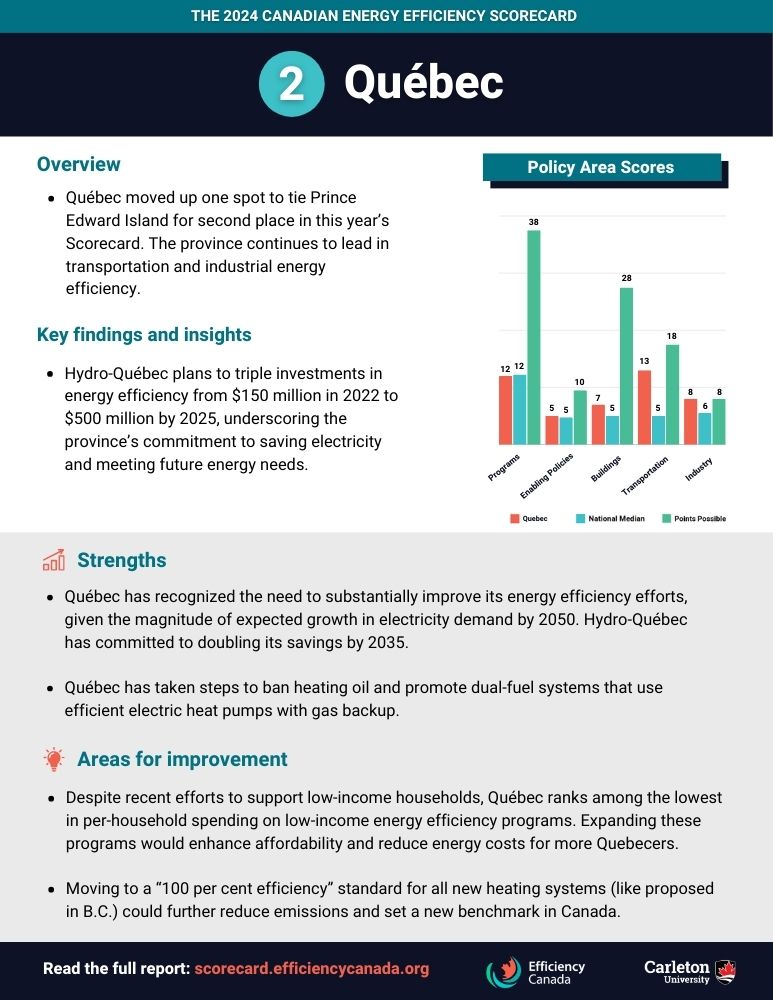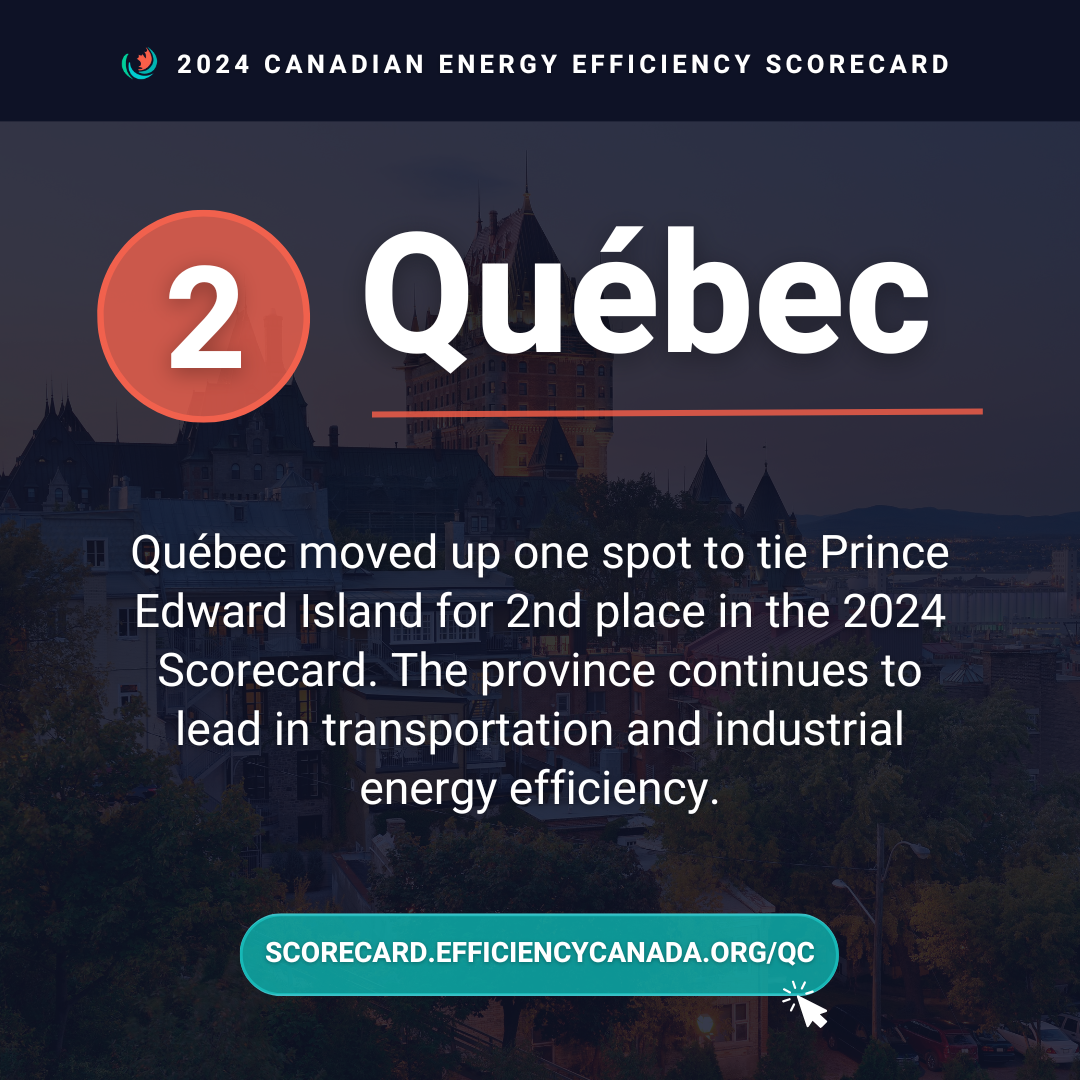Canadian Energy Efficiency Scorecard:
Provinces and Territories
Québec
Québec moved up one spot to tie Prince Edward Island for second place in this year’s Scorecard. The province continues to lead in transportation and industrial energy efficiency.
Key findings and insights
With electricity demand projected to skyrocket by 2050, Québec is prioritizing energy efficiency.
Hydro-Québec plans to triple investment in energy efficiency from $150 million in 2022 to $500 million by 2025, underscoring its commitment to save electricity and meet future energy needs.
Strengths
Québec has taken steps to ban heating oil and promote dual-fuel systems that use efficient electric heat pumps with gas backup.
The province is also a leader in efforts to electrify transportation.
Opportunities
Despite recent efforts to support low-income households, Québec ranks among the lowest in per-household spending on low-income energy efficiency programs.
Expanding these programs would enhance affordability and reduce energy costs for more Quebecers.
Moving to a “100 per cent efficiency” standard for all new heating systems (like proposed in B.C.) could further reduce emissions and set a new benchmark in Canada.
Policy Area Scores
Québec
National median
Points possible
Programs
12 points
12 points
38 points
Enabling policies
5 points
5 points
10 points
Buildings
7 points
5 points
28 points
Transportation
13 points
5 points
18 points
Industry
8 points
6 points
8 points
* Points are rounded to the nearest whole number. Totals might not sum due to rounding.
2024 Scorecard ranking

British Columbia

Prince Edward Island

Québec

New Brunswick

Nova Scotia

Ontario

Yukon

Manitoba

Saskatchewan

Newfoundland and Labrador

Alberta

Nova Scotia
40/100 Points
Prince Edward Island
45/100 Points
New Brunswick
43/100 Points
Newfoundland and Labrador
14/100 Points
Québec
45/100 Points
Ontario
33/100 Points
Manitoba
30/100 Points
Saskatchewan
16/100 Points
Alberta
8/100 Points
British Columbia
54/100 Points
Yukon
32/100 Points
2024 Scorecard ranking

British Columbia
54/100 Points

Prince Edward Island
45/100 Points

Québec
45/100 Points

New Brunswick
43/100 Points

Nova Scotia
40/100 Points

Ontario
33/100 Points

Yukon
32/100 Points

Manitoba
30/100 Points

Saskatchewan
16/100 Points

Newfoundland and Labrador
14/100 Points

Alberta
8/100 Points



